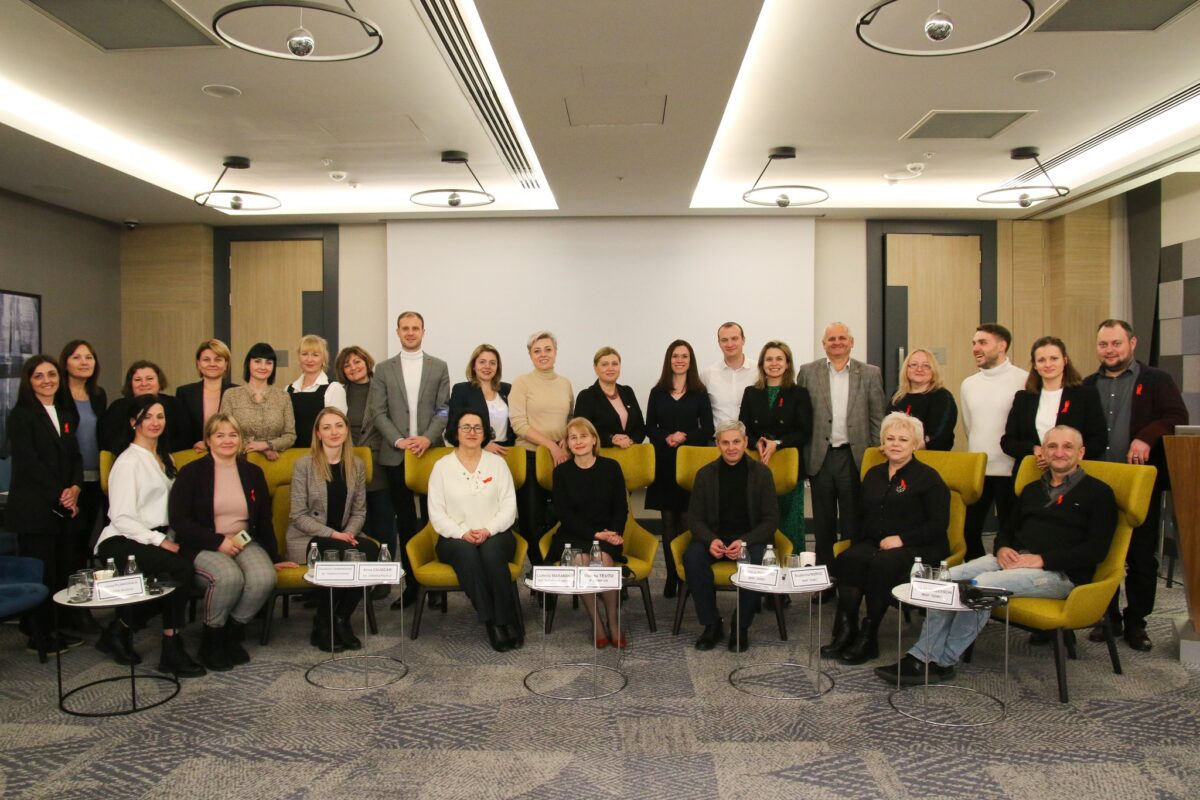On December 19, was launched the two-day National Dialogue 2022, under the theme «Sustainability of the national response to HIV in terms of coverage, quality and continuity of services», dedicated to World AIDS Day.
The first day of the National Dialogue was attended by experts who presented the results of the 2022 work in the areas of HIV prevention and good practices, access and quality of pharmacotherapy, testing, treatment, care and support. In addition to the results, were discussed challenges, obstacles and future plans.
Participants and speakers included representatives of the Ministry of Health and Justice, the National Health Insurance Company (CNAM), the National Penitentiary Administration, experts, representatives of civil society and others.

On the second day of the Dialogue, one of the speakers was Fomina Tatiana, who is coordinator of the REAct system in the Republic of Moldova. She presented the Cascade of Human Rights Services.
It should be recalled, that in Moldova for the second year, some organizations, that work in the field of HIV prevention with vulnerable population groups, conduct human rights screening in the Electronic System of Monitoring on a routine basis. Each client who enters the service undergoes such screening. Based on the results of the screening, a legal consultation or redirection is carried out. And if, a violation of human rights has been detected, the case goes to the reactor, who deals with its documentation and solution.
In 2022, 2,525 people were screened, and 275 said their rights were violated. As a result, 73 cases were placed in REAct and 2 of them proved to be strategically important.
Also were presented good practices by solving cases in 2022.
New challenges were identified, where it is still difficult to solve cases, due to the deep self-stigmatization of beneficiaries.
“I was hospitalized with Covid-19 at the beginning of the year, in an emergency hospital, and a paper with information about HIV status and other was pasted at the back of the hospital bed. This information could be seen by medical personnel and other patients.”
04/08/2022, Serghei, 38 years
Discussions have also focused on ways to strengthen and expand the cascade to cover all organizations working in the area of HIV prevention, which is a big step for detecting and responding to offenses.
Read also:


